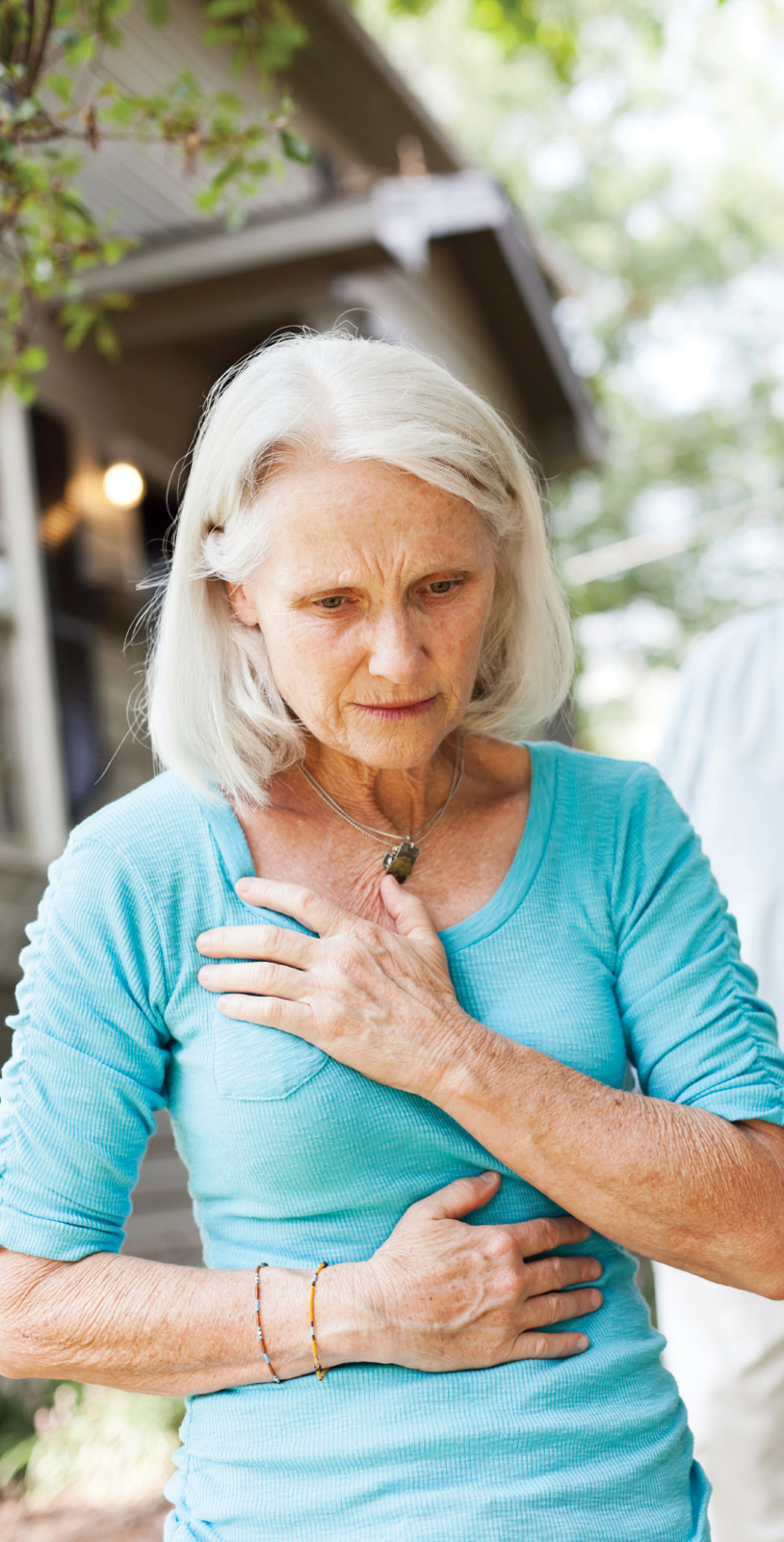Patient Guide
Key Information for Your Stay

Heart Attack & Stroke
Recognize the Signs and Get Help Quickly
A heart attack or stroke is a medical emergency and every second counts. The faster you or a loved one recognizes the symptoms and gets help, the better your chances of surviving, with the least amount of damage to your heart or brain. Once you’ve had an event, you’re at greater risk of having another in the future. But keep in mind that the symptoms of a second event can be different from what you experienced the first time.
Heart Attack Warning Signs
The main symptom of a heart attack is chest pain or discomfort that can also feel like pressure, fullness or squeezing in your chest. These feelings may start gradually and get worse, or they may come and go. You might also feel pain or discomfort in one or both arms or your jaw, neck, back or stomach.
The symptoms of a heart attack can be different for women. Women may also have:
- unusual heartburn
- shortness of breath
- lightheadedness
- nausea
- pressure in upper back
- fatigue or anxiety weeks before a heart attack
Stroke Warning Signs
Think F.A.S.T. when it comes to recognizing a stroke:
- Face Drooping: Is your face numb? Does one side of your face droop when you try to smile?
- Arm Weakness:
Is one arm weak or numb? Raise both arms. Does one arm drift downward?
- Speech Difficulty:
Is your speech slurred? Are you unable to speak? Try to say a simple sentence like “The sky is blue.”
- Time to Call 911:
If you notice any of these symptoms, even if they go away, call 911 right away.
Other sudden stroke symptoms can include:
- numbness or weakness in your leg, face or arm, especially on one side of the body
- confusion or trouble understanding speech
- trouble seeing in one or both eyes
- trouble walking, dizziness, loss of balance and coordination
- severe headache with no known cause
Recognize the symptoms and get to the hospital quickly to help prevent damage to your heart and brain. Once you’re at the hospital, you may receive treatments and procedures that can help stop the progress of heart attacks and strokes.

Don't Wait
If you notice symptoms of a heart attack or stroke, don't wait to see if they get worse, and don't drive to the hospital. Call 911 immediately. Emergency care providers can begin treatment right away rather than waiting until you get to the hospital.
Patient Guide Solutions, LLC
All Rights Reserved